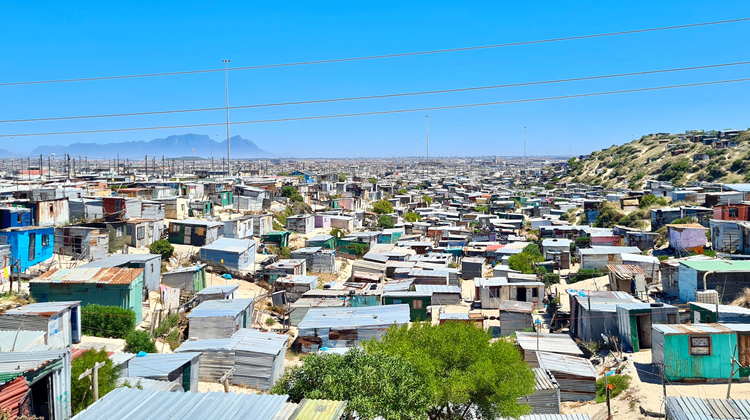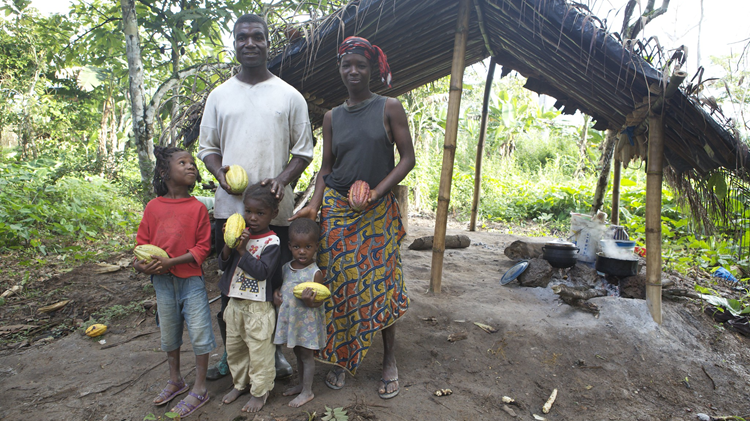To venture or not to venture: funding Africa’s early-stage innovation

Africa’s early-stage financing ecosystem should leapfrog into a development financing space that hasn’t yet been witnessed in emerging markets.
The recent fallout from Silicon Valley Bank’s 48-hour descent into closure sent tremors across the global financial sector for investors and tech startups. Being the 16th largest bank in the United States (US) with an investment grade rating, economists and many other stakeholders in the financial services sector are worried about how far-reaching the contagion may be.
Africa seems to remain an outlier when economic shocks threaten the North American, other advanced and even emerging economies’ funding landscape. For example, the global venture capital industry retreated by 35% on average last year; and yet in Africa, it grew by close to 5% - the only region in the world that witnessed growth. In the case of Silicon Valley Bank, some stories have emerged of African tech startups who banked with them. Still, it seems that most had minimal exposure and that the difficulties of opening a US account as an African startup acted as a safeguard.
African innovation ecosystems may have been sheltered from the brunt of the economic headwinds in the tech sector that have led to tens of thousands of layoffs, down rounds, and bank runs. Still, recent events provide enough justification for pause. The African early-stage funding space is at a formative stage where an opportunity exists to learn from the successes and failures of other ecosystems. It is these learnings that provide a compelling picture of what the early-stage funding ecosystem should look like in Africa.
The financial landscape for early-stage ventures in Africa must prioritise sustainability. Most countries in Africa can be classified as low or lower-middle income, with large swathes of the population lacking access to affordable, quality goods and services. Silicon Valley venture capital models have often prioritised hypergrowth over everything, but a sustainable funding approach can address underserved populations while providing commercial returns. In this approach, philanthropic and impact capital act to de-risk transactions and make it safe for commercial capital to participate.
Currently, only 1% of global venture capital dollars are invested in Africa
Concessional capital is a key element of early-stage financing that comes with strong impact frameworks. These ensure that key issues like climate action, gender equity and diversity, equity and inclusion are prioritised. This approach is proved critical by the fact that historically only 3% of investment funds in Africa have gone to women-led businesses. It is also becoming less of a choice and more of a requisite. Africa’s biggest company Naspers recently shut down Naspers Foundry, a US$100 million fund, after South Africa’s Competition Commission highlighted that it had invested only 13% in people of colour and 8% in women.
Venture grants are an important form of concessional capital that often address seed stage needs for entrepreneurs who are too small for venture capital and do not have access to enough capital from family and friends to get them to the next funding round. Such companies often sit in the ‘missing middle’, which Jim Chu, CEO of Untapped Global, calls a ‘VC blindspot’ that equates to a funding gap of US$3.9 trillion across the global south.
Venture grants provide an opportunity for a blended capital approach to structuring deals that combines impact-oriented and commercial-oriented capital. Venture grants can act as first-loss capital or be applied to technical assistance, playing an important role in guiding commercial investors into transactions capable of building sustainable ecosystems.
For finance to be effective in the venture space, it must be rooted in a partnership model. Every innovation ecosystem is unique, but there is a constellation of stakeholders that partner to make it successful. Key participants include academic institutions, skilled labour, support services, business mentors, risk-taking founders and strategic capital. In such an ecosystem, each node plays a critical role in supporting adjacent nodes, sometimes choosing to integrate along their value chain for efficiency.
African markets still possess the fundamentals that will drive demand for goods and services, for decades to come
Silicon Savannah in Kenya and Egypt’s The GrEEK Campus have built ecosystems successfully on this model, attracting the bulk of Africa’s recent investment along with Nigeria and South Africa. This kind of partnership can also be observed at a micro level, such as in incubators and accelerators, which often bring together entrepreneurs, business support and investment. It is highly instructive that Africa: The Big Deal counts accelerators, such as Y Combinator and Techstars, among the five most active investors in Africa by deal count in 2021 and 2022.
A strong partnership model in the early-stage innovation space features regulators and financial institutions working closely together. As was highlighted in the Silicon Valley Bank debacle, regulators have the delicate responsibility of promoting innovation while protecting consumers.
According to Liliana Rojas-Suarez, one of the criticisms around the bank’s collapse was that regulators provided accounting loopholes that allowed the institution, which banked nearly 50% of US tech startups, to delay stress testing and capital requirements.
These interventions were meant precisely to provide an assurance that the widespread effects of the 2008 credit crunch could not easily reoccur. Despite this intent, when a regulator doesn’t fulfil its duty of oversight to financial institutions, consumers and the industry at large will bear the cost.
Venture grants can act as first-loss capital or be applied to technical assistance
Another disruptive event in the context of regulatory oversight was recently observed when the Central Bank of Nigeria decided to remove old banknotes from circulation. This move was highly inconvenient to unbanked Nigerians and the informal market, leading to an approximate 7.6% contraction in GDP and eventually being found unconstitutional by the country’s Supreme Court.
In this situation, the regulator’s poorly executed plan to migrate the population to a cashless economy again brought harm to the consumer with reverberations across the entire economy. The role of regulators as key partners to financial institutions and as safeguards for citizens and businesses must be upheld with transparency and effective feedback mechanisms.
Perhaps the most obvious lesson from the Silicon Valley Bank episode is that Africa’s early-stage capital pool has to be localised. African entrepreneurs should be able to source capital and financial services from local institutions.
Commercial banks, sovereign funds, pension funds, family offices, fintech and others can play a key role in developing innovative financial products for African entrepreneurs based on a nuanced understanding of the local environment. This solves for information symmetry while also protecting entrepreneurs from the currency risk inherent in receiving dollar-denominated funds.
Concessional capital is a key element of early-stage financing that comes with strong impact frameworks
Currently, only 1% of global venture capital dollars are invested in Africa. Even so, the African venture ecosystem is undergoing a significant cooling period. However, African markets still possess the fundamentals that will drive demand for goods and services, for decades to come. Now is the time for the African early-stage financing ecosystem to chart a trajectory that is capable of supporting its vast potential with the resilience, originality and reliability that it deserves.
Now is the time for the African early-stage financing ecosystem to leapfrog into a development financing space that hasn’t yet been witnessed in emerging markets.
Image: Anna Nekrashevich/Pexels






